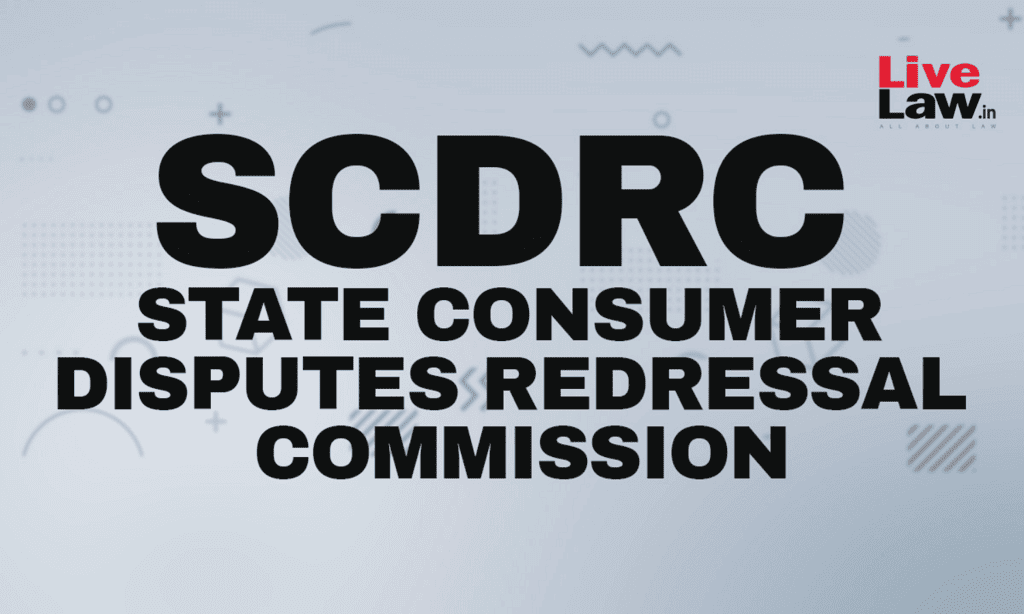Laxmikant Summary: Consumer Commissions | Indian Polity for UPSC CSE PDF Download
The Consumer Protection Act of 2019 is a law that replaced an earlier one from 1986. Just like the old law, the new one sets up a three-level system to resolve issues for consumers. These levels are called the District Consumer Disputes Redressal Commission, the State Consumer Disputes Redressal Commission, and the National Consumer Disputes Redressal Commission. People commonly refer to them as District Commission, State Commission, and National Commission.

These commissions act like courts but are not exactly the same. They're there to help consumers resolve problems without going to regular courts. The District Commission is in each district, set up by the state government. The State Commission is in each state, usually working from the state capital, and the National Commission is at the national level.
 National vs State vs District Commission
National vs State vs District Commission
The central government sets up the National Commission, which typically operates from the national capital region. The idea is to make it easier for people to get help with consumer issues without going through the regular court system.
Right now, there are 678 District Commissions and 35 State Commissions, with the National Commission at the top. The National Commission was formed in 1988. In simple terms, these commissions are like special courts that focus on helping consumers in different areas.
National Consumer Disputes Redressal Commission
Composition
The National Commission consists of a President and a specified number of members, which, as of 2020, ranges from four to eleven members. At least one member of the National Commission must be a woman.
- The central government has the authority to establish rules regarding the qualifications, appointment, salaries, allowances, resignation, removal, and other conditions of service for the President and members.
- The appointment of the President and members is made by the central government based on recommendations from a search-cum-selection committee, chaired by the Chief Justice of India or a Judge of the Supreme Court nominated by the Chief Justice.
- Individuals below the age of 50 are not eligible for appointment as President or members.
- The President and members hold office for a term of four years or until they reach the age of 70 (for the President) or 67 (for members), whichever occurs earlier.
- Once appointed, neither the salary, allowances, nor other terms and conditions of service for the President or any other member can be changed to their disadvantage.
Jurisdiction
- Pecuniary Jurisdiction: The National Commission deals with complaints where the value of goods or services is more than rupees ten crores. However, the central government can set different values. In 2021, this limit was reduced to above rupees two crores.
 National Commission Disputes Redressal Commission
National Commission Disputes Redressal Commission - Appellate Jurisdiction:
The National Commission can hear appeals against orders from any State Commission. Appeals should be filed within 30 days from the State Commission's order. If there's a good reason, the National Commission may consider an appeal filed after 30 days.
Additionally, the National Commission can hear appeals against orders of the Central Consumer Protection Authority (CCPA). Appeals must be made within 30 days from the date of receiving the CCPA's order.
- Revisional Jurisdiction: The National Commission has the power to review records and make appropriate decisions in any consumer dispute that is either pending or has been decided by a State Commission in specific situations:
- If the State Commission has used a jurisdiction not legally given to it.
- If the State Commission has failed to use a jurisdiction it has.
- If the State Commission has acted illegally or with significant irregularities while using its jurisdiction.
Additional Power of National Commission
- Declaration of Unfair Terms: The National Commission can declare any terms in a contract unfair to a consumer as null and void.
- Review of Orders: The National Commission has the power to review its own orders if there is a clear error on the record. This review can happen either on its own or if a party applies within 30 days of the order.
- Setting Aside Ex-parte Orders: If an order is passed by the National Commission without hearing one party (ex-parte), the aggrieved party can apply to set aside such an order.
- Transfer of Complaints:
- The National Commission can transfer a complaint from one state's District Commission to another or from one State Commission to another. This can be done either based on the complainant's request or at the Commission's initiative.
- An appeal against the National Commission's order can be made to the Supreme Court within 30 days. However, the Supreme Court may consider an appeal filed after 30 days if it finds there was a good reason for the delay.
Administrative Control of National Commission
- Performance Monitoring: The National Commission oversees how well the State Commissions handle cases. This involves regularly checking reports on the number of cases filed, resolved, and still pending.
- Investigating Allegations: If there are any complaints or accusations against the President and members of a State Commission, the National Commission is responsible for looking into these claims. It then submits reports on its findings to the concerned state government.
- Issuing Instructions: The National Commission can give directions on various matters such as:
- Making sure there are consistent procedures when hearing cases.
- Ensuring that copies of documents presented by one party are shared with the other party beforehand.
- Requiring English translations of judgments written in languages other than English.
- Speeding up the process of providing copies of documents.
- Supervising State and District Commissions: The National Commission keeps an eye on how both State Commissions and District Commissions operate. This can involve inspections or other methods to make sure that the goals of the Consumer Protection Act are achieved, all without compromising their quasi-judicial independence.
State Consumer Disputes Redressal Commission
Composition
Each State Commission has a President and several members as decided by the central government, not less than four.
- Central Government Rules: The central government can create rules regard:
- Qualifications needed for the appointment.
- Recruitment process.
- Procedure for appointment.
- Term of office.
- Resignation and removal of the President and members of the State Commission.
- State Government Rules: The state government can create rules for:
- Salaries and allowances.
- Other terms and conditions of service for the President and members of the State Commission.
Jurisdiction
1. Pecuniary Jurisdiction: The State Commission handles complaints where the value of goods or services is more than rupees one crore but doesn't exceed rupees ten crores. The central government can set different values; in 2021, this limit was reduced to above rupees fifty lakhs but up to rupees two crores.
2. Appellate Jurisdiction: The State Commission can hear appeals against orders from any District Commission within the state. Appeals should be filed within 45 days from the date of the District Commission's order. If there's a good reason, the State Commission may consider an appeal filed after 45 days.
3. Revisional Jurisdiction: The State Commission has the power to review records and make appropriate decisions in any consumer dispute pending before or decided by any District Commission within the state. This can happen in specific situations:
- If the District Commission used a jurisdiction not legally given to it.
- If the District Commission failed to use a jurisdiction it has.
- If the District Commission acted illegally or with significant irregularities while using its jurisdiction.
Other Powers
- Declaration of Unfair Contract Terms: The State Commission can declare any terms in a contract unfair to any consumer as null and void.
- Review of Orders: The State Commission has the power to review any of its orders if there is an apparent error on the record. This review can be initiated by the commission on its own or through an application made by any party within 30 days of the order.
- Transfer of Complaints: The State Commission can transfer any complaint pending before a District Commission to another District Commission within the state. This can be done either based on the complainant's request or at the commission's own initiative.
- Administrative Control over District Commissions: The State Commission has administrative control over all the District Commissions within its jurisdiction. This ensures effective oversight and management of consumer dispute resolution at the district level.
District Consumer Disputes Redressal Commission
Composition
Each District Commission is made up of a President and a number of members, not less than two, as determined in consultation with the central government.

- Central Government Rules: The central government can create rules concerning:
- Qualifications required for appointment.
- Recruitment process.
- Procedure for appointment.
- Term of office.
- Resignation and removal of the President and members of the District Commission.
- State Government Rules: The state government is empowered to establish rules for:
- Salaries and allowances.
- Other terms and conditions of service for the President and members of the District Commission.
- Vacancy in Office: If there's a vacancy in the office of the President or a member of a District Commission, the state government can:
- Direct another specified District Commission to handle jurisdiction for that district.
- Appoint the President or a member from another specified District Commission to perform the duties of the vacant position in the District Commission.
Jurisdiction

- District Commission Jurisdiction: The District Commission can handle complaints where the value of the goods or services paid as consideration does not exceed rupees one crore. The central government may set different values; in 2021, this limit was reduced to up to rupees fifty lakhs.
- Functioning Location: The District Commission usually operates from the district headquarters. However, it may also carry out its functions at other places within the district, as decided by the state government in consultation with the State Commission.
- Review of Orders: The District Commission has the power to review any of its orders if there is an obvious error on the record. This review can be initiated by the Commission itself or through an application made by any party within 30 days of the order.
|
147 videos|609 docs|204 tests
|
FAQs on Laxmikant Summary: Consumer Commissions - Indian Polity for UPSC CSE
| 1. What is the National Consumer Disputes Redressal Commission? |  |
| 2. What is the State Consumer Disputes Redressal Commission? |  |
| 3. What is the District Consumer Disputes Redressal Commission? |  |
| 4. How can I approach the Consumer Commissions for dispute redressal? |  |
| 5. What kind of disputes can be addressed by the Consumer Commissions? |  |

|
Explore Courses for UPSC exam
|

|




















